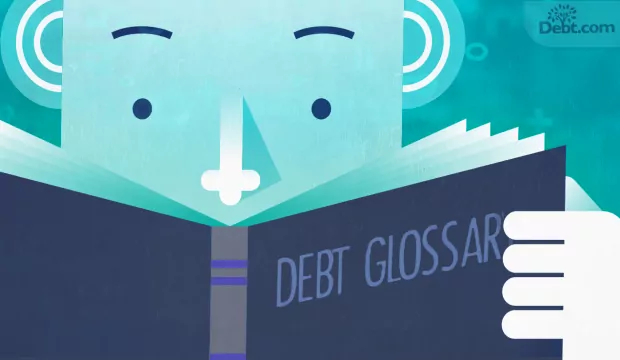Credit cards can be a useful financial tool, but only when they are used correctly. From shopping online to making travel reservations, there are plenty of tasks that are easier if you have a credit card handy. Not only that, but these cards also provide one of the easiest ways to build and maintain a solid credit history, so you can rent or buy property, purchase a vehicle or even get that job you want.
If you’re going to use credit cards, though, it’s essential that you understand exactly how they work and what it takes to manage the debt they generate. If you have a question about credit cards, chances are someone else has already asked that question, too. Here are answers to the most common questions that Debt.com receives about credit cards and credit card debt.
If you can’t find what you’re looking for here, you can ask our experts directly. Also, if you need help with your debt fast, try Instant Debt Advisor℠. In three minutes, it can tell you the best solutions for your specific debt problem. Just answer a brief questionnaire about your current financial situation and Instant Debt Advisor℠ will tell you the best way for you to get out of debt. It’s free to use and has no impact on your credit score.
In most cases, your Social Security benefits should be protected from garnishments from debt collectors. However, there are some rules you need to know to ensure your Social Security checks don’t get garnished. First, a collector or creditor must get a civil court judgment to garnish any money from your wages or bank accounts. Even then, they must leave at least two months’ worth of Social Security income in the account. However, if you have more than two months’ worth of benefits in the account, you could risk losing some of it. The good news is that there are steps you can take to protect your benefits, so you’re not left high and dry.
Learn how to protect your Social Security benefits from garnishment »
No. Debtor’s prison hasn’t been a thing in the United States since the 1800s, and yet there are plenty of collectors that threaten people with jail if they don’t pay. Credit card debt is a civil debt, which means that although a collector can sue you in civil court, you can’t face criminal charges, including prison. In other words, you can’t go to jail just because you don’t pay a credit card bill. In fact, if a collector threatens you with arrest, they’re the ones breaking the law. The collector is violating the Fair Debt Collection Practices Act (FDCPA). That means you have a right to sue them in civil court for collector harassment.
Know what to do if a collector threatens you to scare you into paying »
If you’re planning on buying a home, eliminating credit card debt through debt consolidation should make it easier to qualify. In most cases, debt consolidation should have a positive effect on your homebuying aspirations. As you consolidate, though, you could hurt your credit score or increase your debt-to-income ratio. Either of these things could make it harder to get approved for a mortgage at the lowest interest rate possible. Make sure that you understand these risks, so you can take the right steps to support your goal of buying a home.
Understand how debt consolidation affects your ability to get mortgage approval »
If you’ve tried to get a credit card when you’re stuck with a low credit score, you know how difficult it can be. The best thing you can do in this situation is simply to build your credit score, so you can qualify for the credit card you want. However, if you can’t wait to use credit, try a secured credit card. You put down a small cash deposit to open a credit card with a limit of equal value to your deposit. If you fail to pay your balance, you lose the deposit. Secured credit cards allow you to build credit just like unsecured cards.
Review your credit card options for your bad credit score »
Put simply, credit cards allow you to make purchases now and pay later. If you don’t pay back the full balance you owe to the credit card company at the end of each payment period, they charge interest on your balance and you end up owing more. Credit usage weighs heavily on your credit score, so be aware of how you are using your cards.
Discover Debt.com’s favorite credit card hacks »
Cancelling a credit card can sometimes hurt your credit score because it closes an account, affecting factors like the age of your credit. If you really want to cancel, make sure you’ve paid off the balance in full first. Also make sure to redeem any rewards you have left on the card. Then, follow this guide to cancel the card.
Interest charges on credit card transactions apply differently based on the type of transaction and how you pay your bills. For regular purchases, it’s possible to use a credit card interest-free if you pay your bill in full each month. For balance transfers and cash advances, interest charges apply immediately.
Learn how to calculate credit card interest »
Secured credit cards help you build credit when your credit score is too low for a traditional unsecured card. The creditor requires some kind of deposit that is equal to the value of the credit line you need. For example, if you want a credit line worth $2,000, you need to give your creditor $2,000 first. If you make your payments on time each month, your score should be built back up in six months to one year.
Find out if a secured credit card is right for you »
Credit card debt is revolving debt, meaning there’s no set term that determines how long you have to pay off your balance. If you meet your minimum payment requirements, your creditors will be happy. That doesn’t mean that you should let your credit card balances linger, though. It’s in your best interest to pay off your balances as quickly as possible to save money and minimize the risk of debt problems.
Of course, this flexibility with revolving debt payments only applies if you keep your account current. If you fall behind, this starts the countdown before the creditor charges off your account and sends it to collections. You generally have between six and nine months to catch up before your account goes to collections. There are some other milestones along the way that you want to avoid, such as when penalty APR applies.
Get a detailed look at how long you have to pay off a balance »
It’s not the number of credit cards you have, it’s when you got them and how you use them. If you apply for a few different cards within a few months, this tells creditors that you may be a risky borrower because you are going to make lots of large charges. If you apply for a few credit cards over the course of 10 years, this won’t be the case. But how many credit cards is too many? In general, it’s best to stick with fewer than seven and owe on fewer than four.
Read about the problem with too many credit cards »
Tapping your retirement accounts to pay off credit card debt isn’t doing yourself any favors. This maneuver can delay your retirement or prevent you from retiring at all. You’re not just losing the money you take out of your 401(k) or IRA. You’re also losing the growth you would have enjoyed had you not taken the money out of your account. You may also be required to pay taxes and penalties on the money you take out, depending on your age and the type of account. In general, you want to leave the money in your retirement accounts alone, so it will be there when you need it. The older you get, the more imperative it is to leave your retirement accounts alone.
Our experts explain why tapping retirement accounts to pay off debt is a bad idea »
Whether you miss a payment by accident or stop paying intentionally, there are consequences when you don’t pay your credit cards. A late payment won’t show up on your credit report unless it’s missed by more than 30 days. A higher penalty APR usually gets applied after 60 days of nonpayment, and you must make six consecutive payments to restore your original rate. Depending on the credit card company, you have six to nine months before the creditor will freeze your account, charge it off and send it to a collection agency. Once that happens, you could face legal action in civil court, which can lead to wage garnishment and worse.
See what happens to a debt from the day it’s late until the creditor writes you off »
Some people fear that when a loved one dies, their debt passes down to their inheritors. The truth is that credit card debt can’t be inherited; if a parent passes on, their credit card debt would not pass to you, for example. Credit card companies can make claims on the estate when someone passes away, but once the estate is settled, creditors don’t have any claim on your inheritance and they can’t come after you for any balance still owed. If you’re the executor of your parent’s estate, though, then it may be up to you to inform the credit card company that your parent is deceased.
Learn what happens to outstanding credit card balances when a loved one passes away »
If you’re carrying several credit card balances each month, you must plan efficiently to pay them off. You can use extra cash to make bigger monthly payments, but you may not know the most cost-effective way to use that extra cash. Instead of putting more money toward each of the payments, focus on paying off one debt at a time. If you want to save money, then start with the balance that has the highest APR. If you don’t have a lot of extra cash flow, then you may be better off starting with the lowest balance first.
Learn which credit card you should pay off first »









